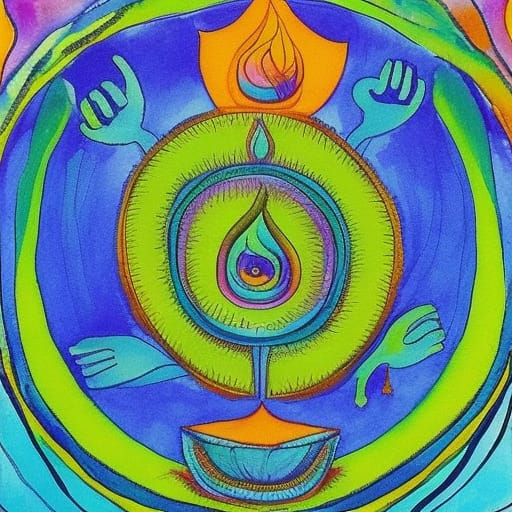Embracing Diversity, Equity, Justiceand Inclusion in Yoga Therapy: A Corporate Journey
- Osiris Booque
- Sep 14, 2023
- 3 min read
Introduction:
In today's world, the buzzwords "Diversity, Equity, and Inclusion" (DEI) or "Justice..." (JEDI) have become increasingly prevalent, and for good reason. DEI principles promote the idea that our differences should be celebrated and that everyone, regardless of their background, should have equal access to opportunities and experiences. As a yoga therapist, I have come to deeply appreciate the importance of DEI in my work, not just as a professional responsibility, but as a personal calling. In this blog, I will share my journey of understanding the significance of DEI and how my mixed-race background has equipped me with invaluable insights to empathize with my DEI clients.
The Essence of DEI in Yoga Therapy:
Diversity, Equity, and Inclusion are not merely checkboxes on a to-do list; they are fundamental pillars that should inform and shape every aspect of our society, including the world of wellness and therapy. In yoga therapy, DEI is crucial because it acknowledges the unique experiences, challenges, and needs of individuals from various backgrounds, races, genders, and abilities. It's about recognizing that one size does not fit all and that a tailored, inclusive approach is essential for fostering healing and well-being.
Empathy as the Key:
As a yoga therapist, my primary role is to guide my clients towards holistic well-being—physically, mentally, and emotionally. To do this effectively, empathy is the key. Empathy means being able to understand and share the feelings of another. When clients from diverse backgrounds come to me for consultation, it's not just about teaching yoga poses or breathing techniques; it's about creating a safe and inclusive space where they feel understood, respected, and valued.
My Mixed-Race Background: A Source of Empathy
Growing up as a mixed-race individual, I have had the privilege of experiencing and understanding the complex dynamics of identity, belonging, and cultural diversity. My heritage has allowed me to navigate the intricate web of different cultures, languages, and traditions. This lived experience has given me a unique perspective that I can draw upon when working with clients from diverse backgrounds.
Cultural Sensitivity: Having been exposed to multiple cultures, I am attuned to the nuances of cultural sensitivity. I understand the importance of respecting and acknowledging cultural practices and beliefs when tailoring yoga therapy sessions. This sensitivity helps me create a culturally inclusive environment where clients feel comfortable.
Intersectionality: My mixed-race background has made me acutely aware of the concept of intersectionality—the idea that an individual's experiences are shaped by the intersection of their various identities (race, gender, sexuality, etc.). I use this awareness to recognize the multifaceted experiences of my clients and ensure that their unique needs are met.
Empathetic Listening: Growing up with a diverse family, I've learned the art of empathetic listening. I know how essential it is to actively listen to clients, to understand their stories, and to validate their feelings and experiences. This enables me to build trust and rapport with clients, regardless of their background.
Creating an Inclusive Yoga Therapy Practice:
Incorporating DEI principles into my yoga therapy practice involves more than just empathy; it requires ongoing education, self-reflection, and a commitment to inclusivity.
Here are some steps I take to ensure my practice is DEI-focused:
Continuous Learning: I invest time in learning about different cultures, identities, and experiences. This helps me avoid assumptions and stereotypes and ensures that I am well-informed when working with diverse clients.
Tailored Approach: I customize yoga therapy sessions to meet the unique needs and goals of each client. This includes modifying practices to accommodate physical abilities and considering the emotional and cultural aspects of their well-being.
Open Communication: I encourage open and honest communication with my clients. I create a safe space for them to express their concerns, fears, or preferences, and I actively seek their feedback to improve my practice continually.
Advocacy: I use my platform as a yoga therapist to advocate for diversity, equity, and inclusion within the wellness industry. I believe that by promoting DEI principles, we can create a more inclusive and welcoming environment for all.
Conclusion:
In the world of yoga therapy, Diversity, Equity, and Inclusion are not optional; they are the very foundation upon which healing and well-being are built. My journey as a mixed-race individual has given me the lived skills to navigate the complex dynamics of DEI, allowing me to deeply empathize with my clients from diverse backgrounds. As I continue on this path, I am committed to creating a yoga therapy practice that celebrates and respects the beautiful tapestry of human diversity, one session at a time.




コメント